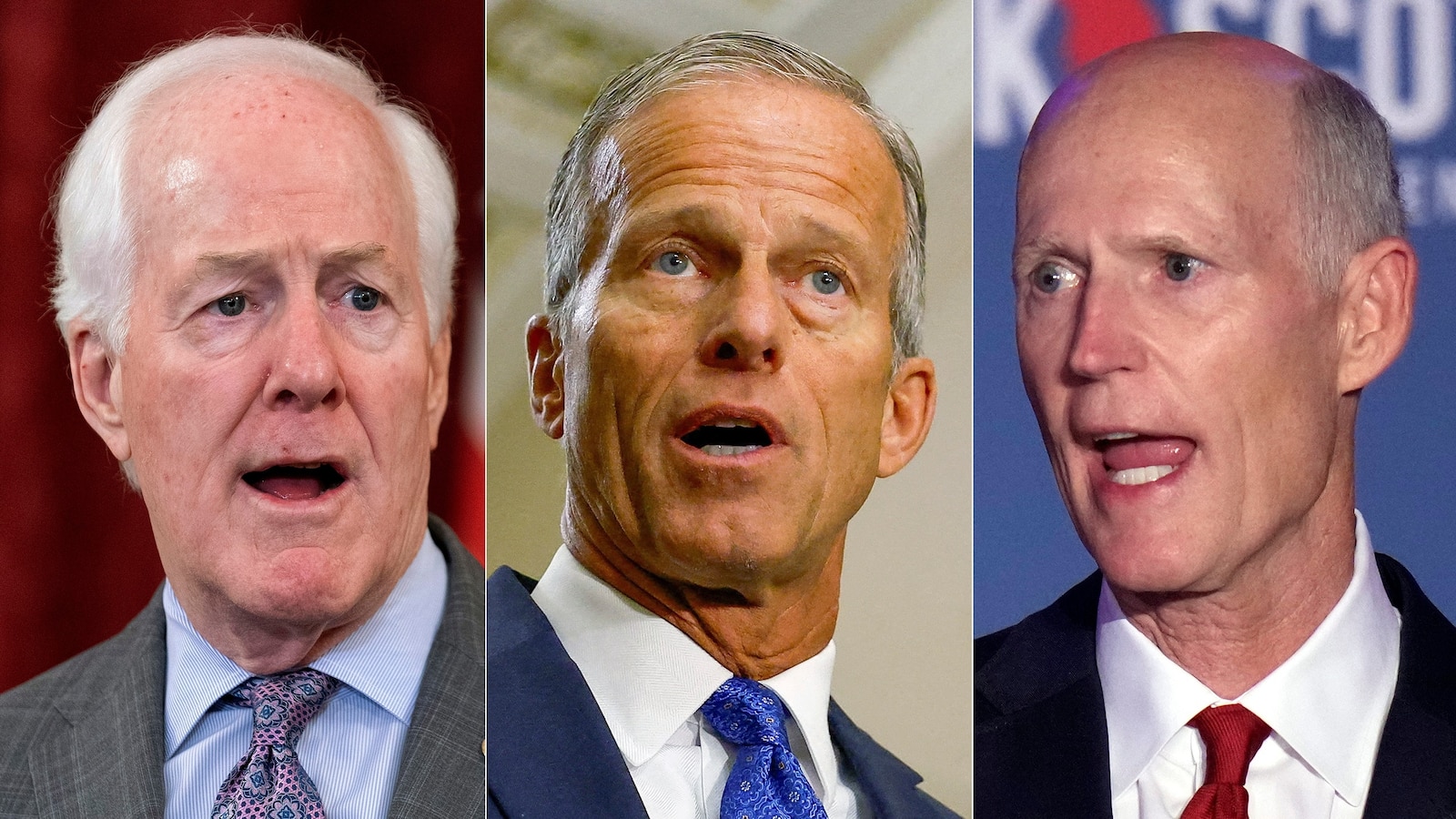Senate Republicans returned to Washington on Tuesday for the first time since they secured a comfortable Senate majority and a victory for President-elect Donald Trump, but most already have their eyes on a different election set to take place Wednesday to determine the new party leader in the chamber.
Three senators are running to replace Mitch McConnell, who has served atop the Senate Republican Conference for a record-breaking 17 years. With McConnell announcing his intent to step aside earlier this year, Sen. John Thune, the current Republican whip, is running against Sen. John Cornyn, a Texas senator and former Republican whip, and Sen. Rick Scott, a Florida Republican who just won reelection to his second term.
Ahead of the vote, slated for Wednesday morning, Republicans will gather behind closed doors Tuesday evening to hear arguments from Thune, Cornyn and Scott, as well as other senators who are running for downballot leadership positions. Any other candidate who might wish to throw their name in the running for party leadership would also be permitted to do so at that time.
Even before the Tuesday meeting, the candidates are beginning to make their closing arguments and working to assert their loyalty to Trump, whose influence could certainly sway the outcome of the race.

Sen. John Cornyn, Sen. John Thune and Sen. Rick Scott.
AP/Reuters
Cornyn wrote a letter to colleagues Tuesday, obtained by ABC News, in which he repeatedly touted his commitment to Trump’s agenda and confirmation of his Cabinet selections.
“It’s imperative that Republicans hit the ground running to implement President Donald Trump’s agenda for the American people,” Cornyn wrote in the letter, citing GOP success across the House, Senate, an White House.
Scott, meanwhile, has made appearances on cable news outlets in recent days and touted his endorsements from a number of Trump-aligned outside influencers, including Elon Musk and Robert F. Kennedy Jr. He’s tried to position himself as the most Trump-aligned candidate.
And Thune, who perhaps has had the iciest relationship with Trump among the contenders, also made clear he’s been in regular contact with Trump’s team, and he’s made public statements supporting Trump proposals, including potential changes to Senate operating procedure.
Trump has not endorsed a candidate in the leadership race, opting instead to insist that whichever candidate is selected will support his use of recess appointments, which would allow him to temporarily fill federal vacancies without Senate approval.
All three candidates have signaled their willingness to use that strategy to quickly fill out Trump’s Cabinet.

